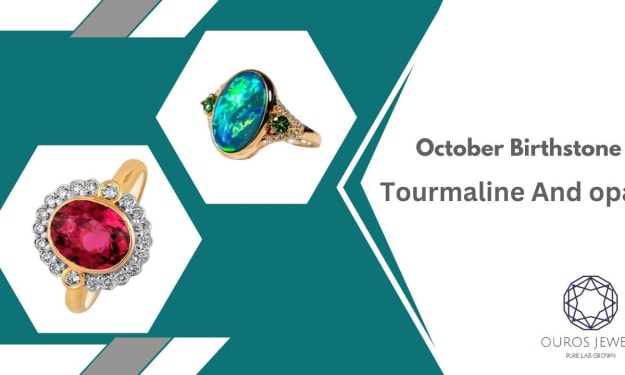Moissanite Vs Diamond - Everything You Need to Know
Moissanite vs Diamond: Differences

When it comes to purchasing a high-end or precious jewelry item, the eternal question of Moissanite vs Diamond often arises. While both are aesthetically pleasing and strong stones, each have their own unique distinctions.
Moissanite is a lab-created gemstone that not only has a dazzling brilliance comparable to the diamond, but also displays vivid refractive fire like no other gem. Its durability makes it resistant to scratches and chips, whilst remaining lighter in weight and carat for carat more affordable than diamonds.
On the other hand, diamonds remain the preferred choice for engagement rings because of their rarity value, as well as their potential for investment over time due to retaining value relative to gold prices. Ultimately, choosing between Moissanite vs Diamond ultimately comes down to personal preference and price point from an aesthetic standpoint.
Moissanite vs diamond- Differences
When comparing moissanite to diamond, one of the main differences lies in their origin. Moissanite is created in a laboratory; it is artificially made out of silicon carbide and has similar qualities to diamonds. Diamonds form naturally deep within the earth over millions of years and are composed mostly of carbon atoms.
In terms of color and clarity, diamonds are valued on a four C grading system - carat Weight, Color, Clarity and Cut - while Moissanite stones generally look more colorless than diamonds with a higher refractive index which makes them appear brighter than diamonds when light strikes them from different angles.
Additionally, moissanites are much less expensive than diamonds with approximately 10 times the hardness and brilliance for only 1/10th of the cost allowing buyers to opt for larger carat sizes for a fraction of the price.
Moissanite vs diamond- Similarities
Moissanite and diamonds are two of the most popular and sought-after gemstones due to their beauty, durability and luster. Both moissanite and diamonds share certain characteristics, such as being composed of crystalline carbons held together via covalent networks. Depending on the cut and shape of both stones, they both possess tremendous sparkle and brilliance that draw attention in any light setting.
Furthermore, both moissanite and diamonds are graded using the same industry accepted “4Cs” (Cut, Clarity, Color & Carat size). These standards apply to their external physical characteristics in order to communicate quality while also keeping pricing consistent between vendors.
Additionally, despite containing varying levels of trace elements throughout the stone itself that affect coloration—both moissanite and diamond have a wide range of color ranges such as pink, yellow or canary hues depending on the level of clarity chosen by the customer.
Benefits of Moissanite
- Moissanite is a valuable gemstone that offers a variety of benefits, making it an excellent choice for any jewelry or accessory piece.
- Moissanite is known for its durability and brilliance; it is a 9.25 on the Mohs Scale, which means it is incredibly hard and resistant to scratches and dents.
- Additionally, Moissanite has superior optical properties as compared to diamonds, which make it more visually appealing when cut into shapes.
- Moreover, moissanite has a higher fire and refractive index than traditional diamonds, making it sparkle brighter and more vibrant than other diamonds.
- Finally, in comparison to diamonds moissanite costs less despite having all the same desirable qualities; this affordability makes the gemstone even more attractive for people looking for quality pieces at budget-friendly prices.
Benefits Of Diamond
- Diamond is widely considered to be one of the most valuable precious stones in the world and has long been used as a symbol of wealth, power and success, making it an attractive material for jewelry.
- In addition to its aesthetic appeal, diamond offers numerous benefits, such as superior hardness and durability, excellent thermal conductivity, optical dispersion and extreme resistors to chemicals.
- Utilizing diamonds can also result in cost savings due to their high thermal conductivity which minimizes energy consumption during production processes or when fabricating or machining parts.
- Finally, diamonds are extremely scratch resistant and have a much higher melting point compared with other materials - making them ideal for cutting tools, drill bits and other industrial applications that require a harder cutting edge.
The Conclusion
When considering moissanite vs diamond it is important to consider both the quality and cost of each option. Diamonds are renowned for their durability and brilliance, and are highly sought after for feature stones in engagement rings and other pieces of fine jewelry.
Moissanite on the other hand is a man-made substance which can have a similar appearance to diamond but is typically more affordable; it has an unmatched fire and brilliance, however its clarity and durability are not as high as that of a diamond making it apt for special occasions but perhaps not as desirable an investment piece. Ultimately, you need to consider your budget and purpose before making your decision.
About the Creator
Ouros Jewels
We deal in pure and certified lab grown diamonds and jewelry at Ouros Jewels. Founded by Vijay Sarkheliya in 2018, since then we are selling eco-friendly diamonds.
Our Social Media Handles:-
1. Linkedin
2. Instagram
3. Twitter
4. Facebook






Comments (1)
Thank you for clarifying the differences between the two. I'm seriously considering adding fine jewellery to my wardrobe and I've wondered which one suited me best on a price to value scale. Well done :)